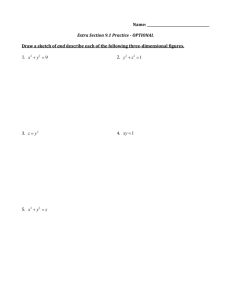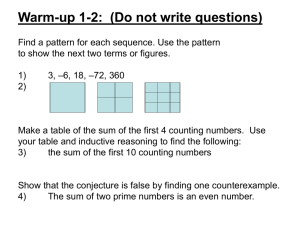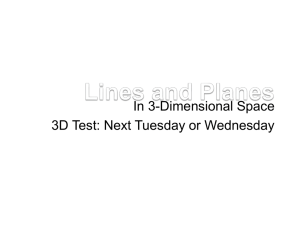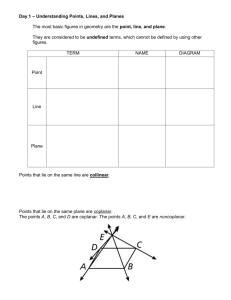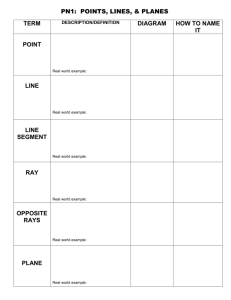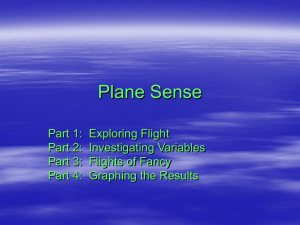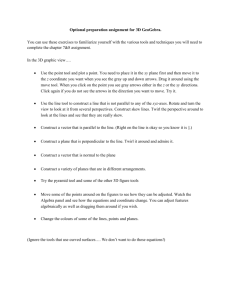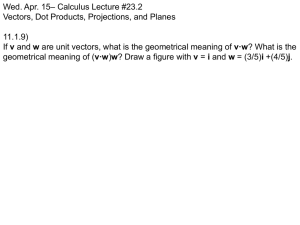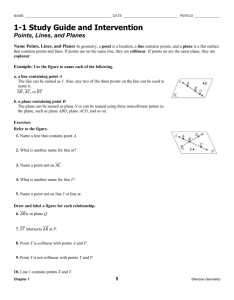3-phase single-interview technique with multiple
advertisement
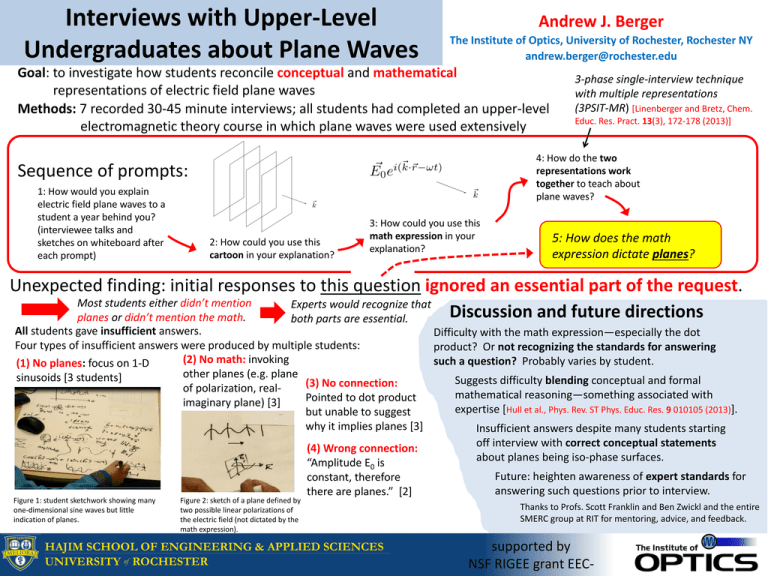
Interviews with Upper-Level Undergraduates about Plane Waves Andrew J. Berger The Institute of Optics, University of Rochester, Rochester NY andrew.berger@rochester.edu Goal: to investigate how students reconcile conceptual and mathematical representations of electric field plane waves Methods: 7 recorded 30-45 minute interviews; all students had completed an upper-level electromagnetic theory course in which plane waves were used extensively Educ. Res. Pract. 13(3), 172-178 (2013)] 4: How do the two representations work together to teach about plane waves? Sequence of prompts: 1: How would you explain electric field plane waves to a student a year behind you? (interviewee talks and sketches on whiteboard after each prompt) 3-phase single-interview technique with multiple representations (3PSIT-MR) [Linenberger and Bretz, Chem. 2: How could you use this cartoon in your explanation? 3: How could you use this math expression in your explanation? 5: How does the math expression dictate planes? Unexpected finding: initial responses to this question ignored an essential part of the request. Most students either didn’t mention Experts would recognize that Discussion and future directions planes or didn’t mention the math. both parts are essential. All students gave insufficient answers. Difficulty with the math expression—especially the dot Four types of insufficient answers were produced by multiple students: product? Or not recognizing the standards for answering (2) No math: invoking such a question? Probably varies by student. (1) No planes: focus on 1-D other planes (e.g. plane sinusoids [3 students] Suggests difficulty blending conceptual and formal (3) No connection: of polarization, realmathematical reasoning—something associated with Pointed to dot product imaginary plane) [3] expertise [Hull et al., Phys. Rev. ST Phys. Educ. Res. 9 010105 (2013)]. but unable to suggest why it implies planes [3] Insufficient answers despite many students starting off interview with correct conceptual statements (4) Wrong connection: about planes being iso-phase surfaces. “Amplitude E is 0 Figure 1: student sketchwork showing many one-dimensional sine waves but little indication of planes. Figure 2: sketch of a plane defined by two possible linear polarizations of the electric field (not dictated by the math expression). constant, therefore there are planes.” [2] HAJIM SCHOOL OF ENGINEERING & APPLIED SCIENCES UNIVERSITY of ROCHESTER Future: heighten awareness of expert standards for answering such questions prior to interview. Thanks to Profs. Scott Franklin and Ben Zwickl and the entire SMERC group at RIT for mentoring, advice, and feedback. supported by NSF RIGEE grant EEC-
